Remember the days when short films were a mainstay of movie-going, serving as the appetizer to the featured entree? Typically animations, newsreels, or comedic narratives, each short was a fully conceptualized standalone film that delighted us all. But somewhere along the way, opening theatrical shorts (with the exception of Pixar) have fallen by the wayside, giving way to 20 minutes of upcoming trailers. Thankfully, film festivals around the world still champion short films. However, as technology has advanced and filmmaking has become more accessible to the masses, not to mention the independent cinematic landscape, shorts have become a vital instrument to filmmakers, particularly those up-and-coming, many of whom see shorts not only as a calling card for their talent but as a proof of concept for a feature film.
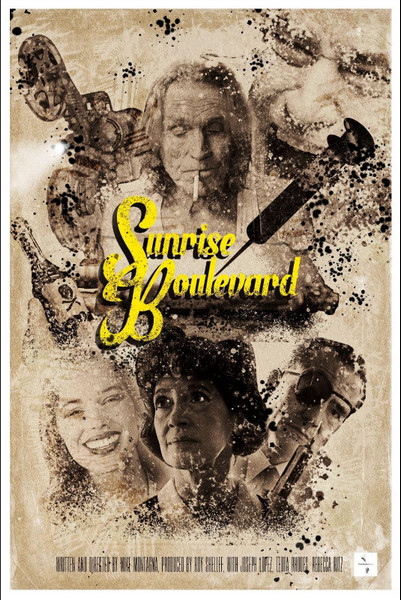
One look at Mike Montagna’s SUNRISE BOULEVARD will not only have you longing for this 19-minute short film to be added as a complement to theatrical features, but also hoping that Montagna does indeed use this short as a proof of concept stepping stone to a feature of the same name.
SUNRISE BOULEVARD is exquisite, simply exquisite, as visual artistry perfectly melds with score, transporting us to a world filled with vintage glamour and artistic wonder, showcased by Rocket Scott’s breathtaking black and white cinematography and punctuated with distinctive and unforgettable performances. Just as the name of the film itself may have you thinking of the award-winning classic “Sunset Boulevard”, so will the mastery of Montagna’s storytelling. In truth and fact, Ms. Donen, the heroine of SUNRISE BOULEVARD, may even have you thinking of a young ambitious Norma Desmond early in her career.
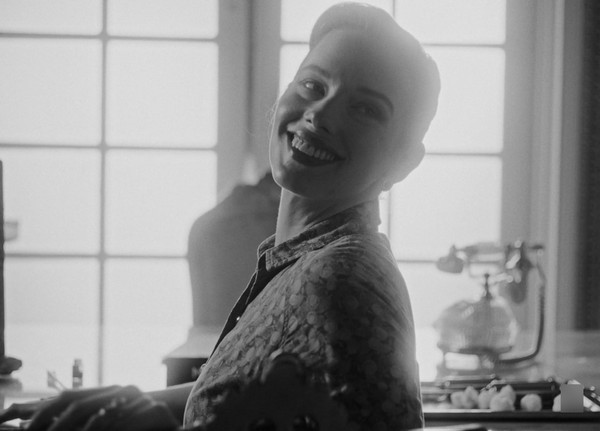
With the opening frame, we are transported to 1955 Hollywood. Everything about the scene is perfection from Andrea Figueroa’s production design to costuming and hair and make-up as we meet Elliot Newman, a long-forgotten former writer now working as a janitor, and the beautiful young actress Ms. Donen. Embracing her own version of “method acting”, Ms. Donen has come to a famous clinic in order to submit to “sorrow therapy” and discover her true depth of emotion in order to prepare for an upcoming role. Known for its philosophy of helping patients tap into pain and sorrow and then using that as a means to instill creativity and make art, the wide-eyed, perpetually happy, glowing with an incandescent 1000-watt smile that never fades Ms. Donen believes she too will find her darkness and inner drama at the clinic. After all, an actor must know sorrow and pain as well as joy and happiness to become a “star” that will burn bright for the ages.
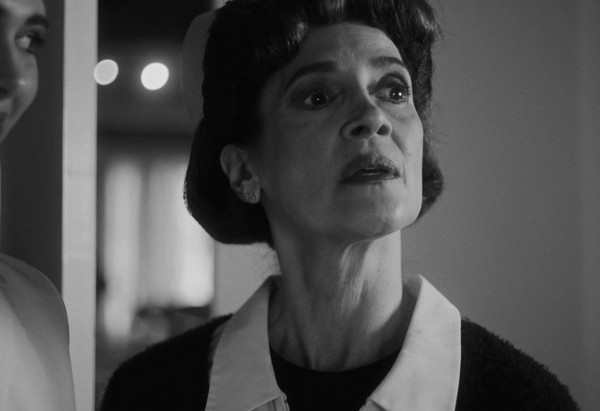
Turning herself over to the clinic and head nurse Ms. Spiegelman (think Louise Fletcher as Nurse Rached in “One Flew Over the Cuckoo’s Nest) who is as perpetually angry, cruel, and unfeeling as Ms. Donen is happy and smiling, it doesn’t take long before Ms. Donen is immersed in the treatments consisting of injections, restraints, and mind manipulation. But something is wrong. Ms. Donen is not sorrowful, sad, or angry. Ms. Donen’s upbeat personality is creatively motivating and inspiring the other patients with their own endeavors as we see impromptu dance recitals, painters, writers, actors, dressmakers, all with smiles on their faces and joy twinkling in their eyes. Sadness and misery are dissipating in all but for Ms. Spiegelman.
Watching over this transformation is Elliot Newman. We first met Newman on Ms. Donen’s arrival. Recognizing Newman as someone Ms. Donen greatly admired and whose work had long inspired her, it has been many years since Newman put pen to paper or his fingers to the typewriter keys and hasn’t written a word in decades. It’s as if he just gave up on himself and life after his course of treatment at the clinic, falling into despair and loneliness rather than having his creative juices jump-started. But there’s something about Ms. Donen and the fact that she recognized Newman and his work, smiling, extending a hand in recognition and friendship, that sparked something Newman hadn’t felt in a long time.
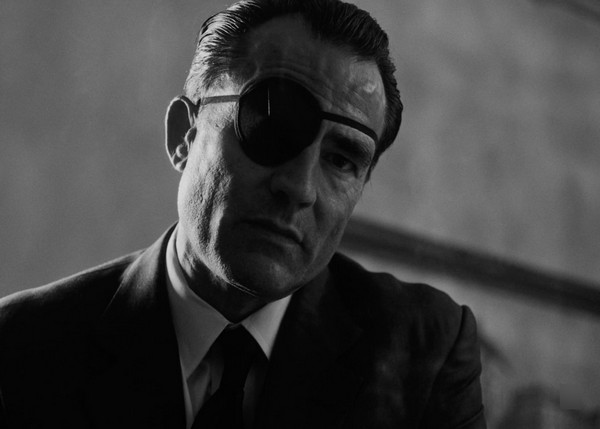
As treatments on Ms. Donen were failing and she was having an “adverse” effect on the other patients, Spiegelman and her boss knew that something drastic had to be done. Things had to return to the status quo prior to Ms. Donen. How to do it though? And what will happen when Elliot Newman overhears the plans?

Beautifully structured from a story standpoint, Montagna opens the film with a voiceover as writer turned janitor Elliot Newman is narrating from his POV, recalling his world of sorrow after the treatments and how that changed with the arrival of Ms. Donen. (A lovely stylistic nod to “Sunset Boulevard”.) For a short film, there is great depth to the narrative speaking to themes of good versus evil, the value of the arts, artistic expression and creativity, and more. A sense of noir fills the senses.
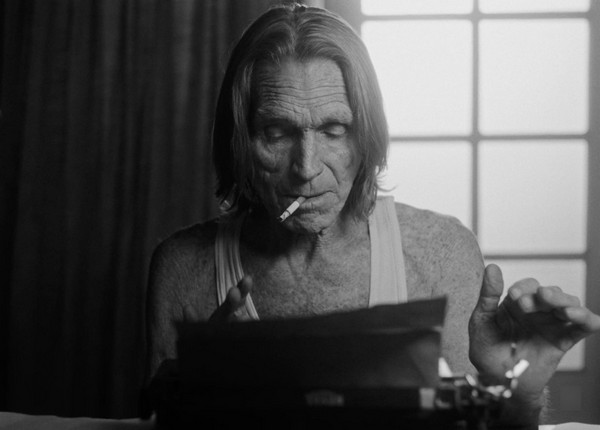
Main characters are well defined in not only their respective personalities but in their intent, much of which is conveyed through skillful, yet truthful, nuanced performance. Elliot Newman is an interesting character not only because of his arc but also thanks to a memorable performance by Joseph Lopez. Piggybacking on the character construction and Lopez’s performance, Montagna meticulously designs the visuals that take us on Newman’s journey through the film. Leota Rhodes dazzles as Ms. Donen in period costume, hair, and make-up. You just know that under the beautiful black and white grayscale world of SUNRISE BOULEVARD, Ms. Donen’s lipstick is that deep Max Factor red of days gone by. Perfection. Beyond the costume and hair, however, Rhodes never falters with the character traits of Ms. Donen; kindness, joy, openness, genuineness. She is a breath of fresh air contrasting Rebecca Ritz as Ms. Spiegelman. And talk about a performance! Ritz is chilling as Spiegelman with her pursed grimace and misery and cruelty oozing from every pore. Again, hair and make-up are outstanding in defining the character.
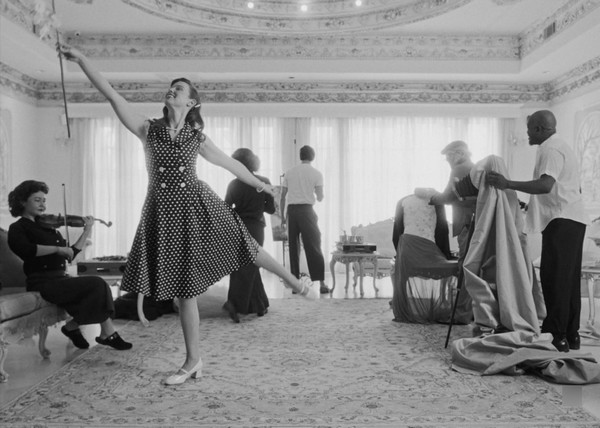
The production values of SUNRISE BOULEVARD are more than award-worthy. Working with luxurious wall to wall floor to ceiling window lighting in the day area of the clinic, cinematographer Rocket Scott transports us to the Golden Age of Hollywood, with soft anamorphic “cheesecloth effect” lensing, using chiffon curtains as a soft filter to the bright sun and happiness of the outside world. Dreamy and at times ethereal, placed within that setting are artisans honing their crafts with precision and movement mirrored by the camera; and this is after our first introduction to the clinic and that day room with curtains drawn and the room in total disarray and destruction after patients spent the day trying to be creative but with obviously frustrating results.
The visual contrast and tonal bandwidth feed into the contrasting emotional bandwidths of the story. Close-ups are aplenty, but judiciously used within a scene, and more than effective.
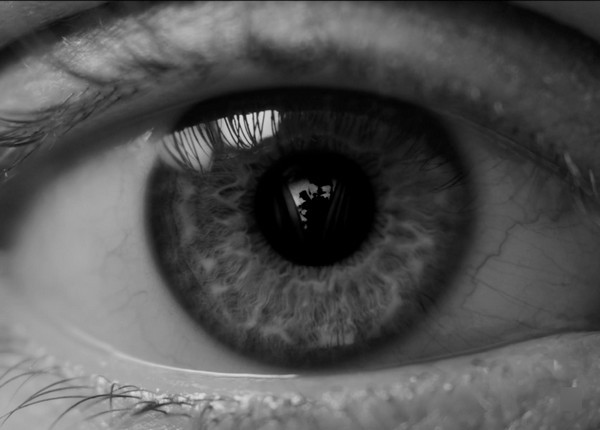
In other areas of the clinic, richly textured negative space comes into play metaphorically speaking to the personas and purposes of the likes of Ms. Spiegelman and the darkness that comes with sorrow. Stark and harsh are treatment rooms and Ms. Spiegelman’s office which are lit and shot coldly, tacitly defining personalities. Shadows loom large. Hallways frequented by Elliot Newman have life and texture thanks to the production design and set dress with 1930s architecture, marble columns, wall inset alcoves, corniches, statues, bas reliefs on the walls, mantels and tables littered with perfectly positioned statuettes of days gone by. Each element is showcased to its best storytelling and visual advantage.
Steven Dickson’s editing is superlative. Dickson embraces a hold on a shot yet never lingers to the point of tedium. With imagery as beautiful as that provided by cinematographer Scott, some moments feel as if a George Hurrell portrait and we want to look a little bit longer, but Dickson gives us just enough to leave us wanting more. Pacing is even, steady, yet lovingly lingering.
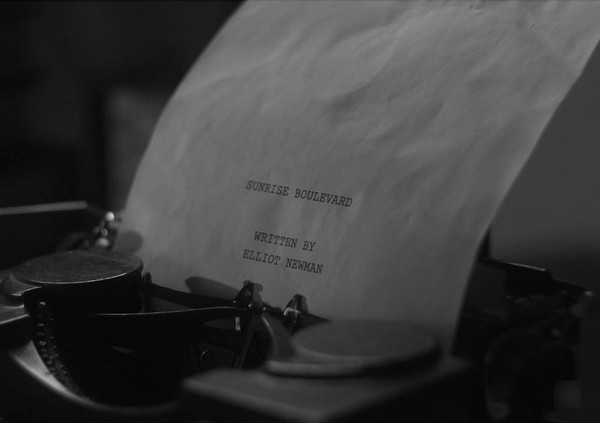
The icing on the cake is Walter Thoma’s score. Boasting soft strings and piano, often single notes, the music is hauntingly beautiful, reminiscent of Franz Waxman or Max Steiner.
SUNRISE BOULEVARD is masterful cinematic storytelling that needs to be expanded into a feature.
Written and Directed by Mike Montagna
Cast: Joseph Lopez, Leota Rhodes, and Rebecca Ritz
by debbie elias, 05/05/2024












